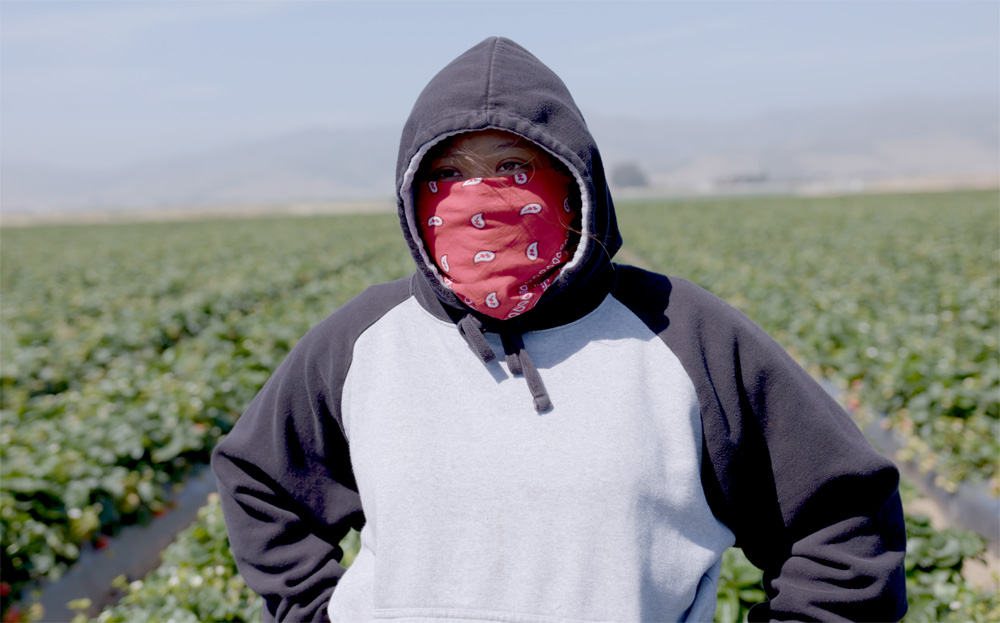It comes naturally to Ashley Solis to envision her own life as part of a far larger story in “Fruits of Labor.” As she notes her mother Beatriz named all of her children starting with the prefix “Ash-“ as a nod to trees, and if nothing else, Beatriz has passed onto her daughter a touch of the poetic in looking at the world after the family planted roots in Northern California where they’ve made a life for themselves, albeit a challenging one, after migrating from Mexico. To have any perspective at all is remarkable when Ashley is required to spend her nights working the late shift at a fruit processing plant and her days in high school where she can barely keep from giving into sleep, but in Emily Cohen Ibañez’s lovely portrait of the teenager, you’ll occasionally hear Ashley embrace the storytelling tradition of her culture as a form of resilience, evoking the beauty in her struggle and bringing context to it when little about her situation would make sense otherwise.
There’s a lyrical flair to Ashley’s descriptions of how she’ll arrive home in the early morning stinking of strawberries, and any sweetness is lost on her well before she attempts to take a shower, a difficult task in the house her family shares with 12 others with only a single bathroom used by all of them. Still, she describes her work in food as a calling when she’s a descendant of healers, which makes the reality in front of her so frustrating for viewers to watch when she faces such unnecessary hardship. While Beatriz has long supported the family as a cleaning lady, Ashley’s contribution to the family’s finances is no less important with sister Ashlynn too young to work and her brother Ashford largely shirking off any sense of responsibility with no one really calling him on it as the lone male in the household. Still, even as Ashley brings in money, she can only look longingly at a $200 dress she wants for a school dance and has a tenuous connection with all the other rituals that she should be enjoying as her other classmates are during their senior year when she has to prioritize keeping a roof of her family’s head over her own matriculation.
Cohen Ibañez sees Ashley stay in class long enough to learn about the United Farm Workers Movement and the unfortunate carve-out in the New Deal to allow the unconscionable agricultural labor practices to continue of enabling kids to work in the fields, a lack of industry regulation that made it possible for Ashley to join the workforce at 15. Even as the time the film spends with the Solises overlaps with the frightening news of family separations at the border and ICE raids in their community, “Fruits of Labor” shows that it is merely one concern among many for immigrants who may seek out a better life but can never enjoy actually living it, even if they can find their financial footing. As much as there seems to be out of Ashley’s control, the use of her narration becomes particularly poignant when it feels like her voice can’t be heard elsewhere and with the rare opportunity to express herself, it’s clear there’s much to be learned from her as she attempts to continue her education against all odds.
“Fruits of Labor” will screen at SXSW through March 20th.




